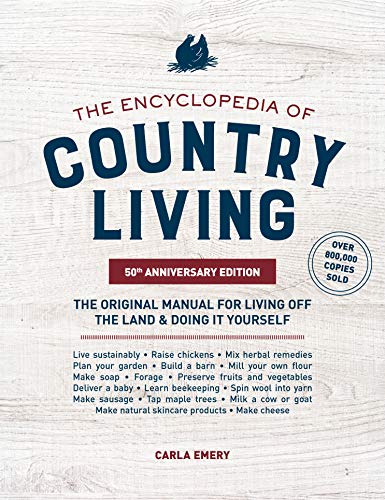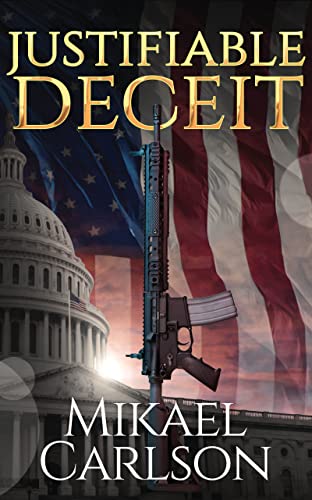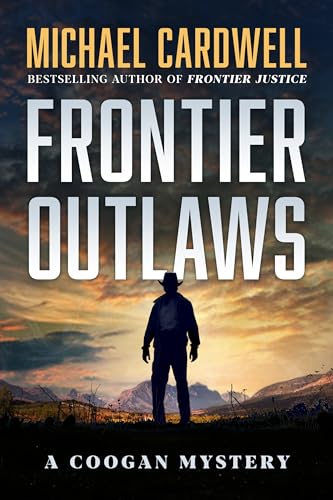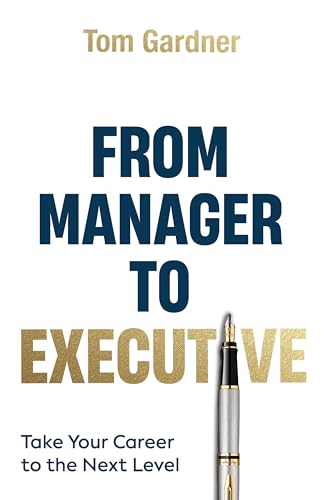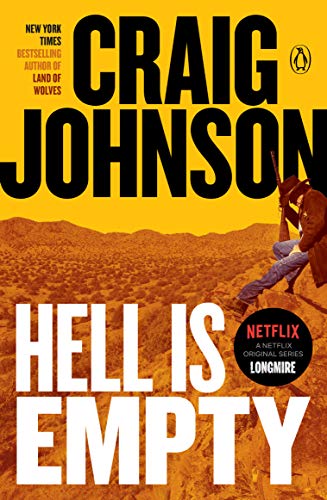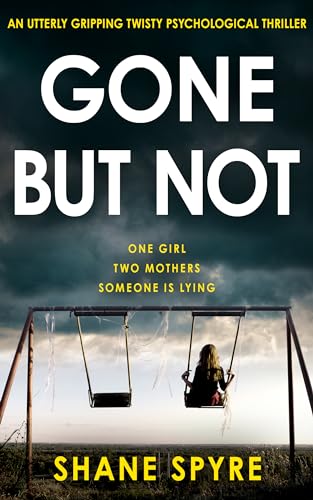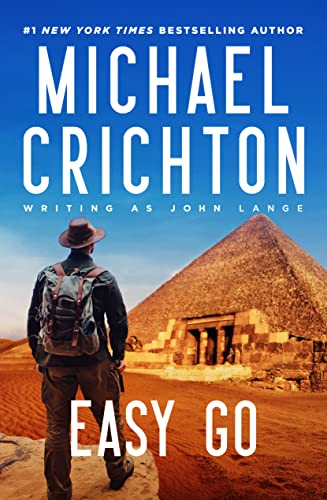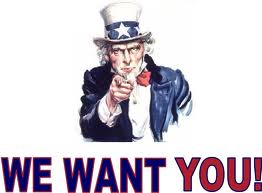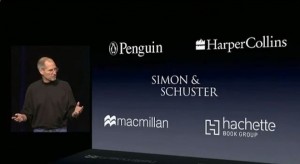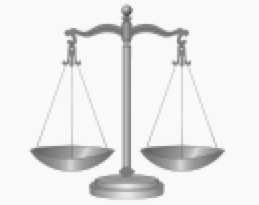
(The following will appear in slightly different form, perhaps with the addition of a glossary, as the Introduction to a new book by Steve Windwalker.)
With most of the books that I have published about the Kindle, I am well aware that readers want to charge up their Kindle, turn it on, download some books, and start reading. The purpose of my books is usually to make the experience richer by sharing information about how to get most out of the Kindle and how to find the best books at the best prices.
But the clash of forces that have been at war, mostly behind the scenes, in the Kindle revolution has had a dramatic effect on the availability of and the prices we pay for ebooks, and those changes have just begun. The machinations that led to the April 2012 U.S. Department of Justice anti-trust action against Apple and five of the six largest U.S. publishers will provide case study fodder both for law school and business school students for decades to come. The more you know about them, the more savvy an ebook consumer you will be. And while it is a fascinating story qua story, it is also no exaggeration to say that, if you have purchased any Kindle books at prices above $9.99 since April 1, 2010, you are likely to be a material party to the anti-trust action with a chance to benefit from a restitution fund that could grow to hundreds of millions of dollars.
So fasten your seatbelts, and here we go….
Apple. Hachette. HarperCollins. MacMillan. Penguin. Simon & Schuster.
One of the most innovative tech companies in the world, and five of the Big Six publishers.
That’s what we used to call them. Then, starting early in 2010, we all tried to come up with new names for them. Apple and the Apple Five. The Agency-Model Price-Fixing Co-Conspirators. The Greedy Dinosaur Publishers. But none of our phrase-making efforts had any special felicity.
But now the U.S. Department of Justice Anti-Trust Division, with its announcements of April 11, 2012, has made it easy on us.
Now there’s a new name for this wild bunch: The Defendants.
Many in the traditional publishing world believed that adoption of the ” agency model” was the biggest news of 2010 in the book business, and perhaps many of the same people will see the demise of the agency model as the biggest news of the next year or two.
Let’s take a look at how we got here, and where we are going. We’ll start back before April Fools Day, 2010 — the day that the agency model took effect — and continue right through to today and beyond by looking at some of the available tea leaves to see where prices, and the book business in general, are likely to go in the future.
The Defendants’ purpose in adopting the agency model was to end competitive pricing for ebooks, and to slow the growth of ebooks in general, and the growth of Amazon’s dominant market share in particular. They did this by foisting a new pricing model on all retailers — including Amazon’s Kindle Store — that had the effect of raising “new release” and many other ebook prices by 30% to 100% over the $9.99 price point that Amazon had established and maintained since the launch of the Kindle in November 2007.
That $9.99 price point involved Amazon taking a loss on some new-release bestsellers and selling others at breakeven, since most of the “copies” sold in the Kindle Store cost Amazon something in the $9 to $13 range, based on a wholesale pricing structure that involved a 50% discount on digital list pricing. Amazon’s strategic decision to lose money or only break even on such a significant part of its ebook sales was based on its belief that the overall “sweet spot” for ebook prices topped out at $9.99.
This limit on ebook prices would make them a compelling value proposition for consumers. Prices would be even lower in many cases for books from lesser known authors or books that had passed beyond new-release status. Beyond that consumer-driven approach to pricing, of course, the company was also pursuing two perfectly logical corporate goals: to achieve a dominant market share among ebook sales, and to grow the market share for the ebook format among all trade book formats.
Not surprisingly, publishers were terrified that Amazon’s loss-leader pricing for the Kindle Store would make it so dominant a player that it would be able to dictate wholesale and retail pricing terms throughout the marketplace. By the time Barnes & Noble launched the Nook in November 2009, Kindle owned a market share of well over 80% for ebook sales, and Nookstore pricing was, for the most part, roughly identical to Kindle Store pricing. Amazon had a powerful weapon that no longer existed for Barnes & Noble: its cash supply and overall marketplace power would allow it to continue taking retail losses or miniscule profits on the big publishers’ ebooks for years to come — or for however long it took Amazon, publishers feared, to be “the last man standing” in the book business.
It was this confluence of terrors — and the $9.99 price point that was at the heart of it — that drove five of the Big Six publishers (all except Random House) to enter into an obviously collusive price-fixing scheme with Apple to try, early in 2010, to block Amazon’s path to dominance. The publishers worried aloud to one another that the $9.99 ebook price point would lead to the erosion of hardcover prices, to ever-greater ebook popularity, and ultimately, perhaps, to demands by Amazon that the publishers lower their wholesale prices.
It’s worth noting here that the publishers might have taken a different, more innovative path. They could even have followed such a path collectively without fear of violating anti-trust laws. Although the agency-model publishers place the blame on Amazon for the business model disruption that the ebook revolution ignited, the fact is that Amazon’s highly successful entry into the ebook marketplace came, itself, out of its own private set of terrors. We have speculated before that back in 2003 and 2004 when Jeff Bezos, Steven Kessel, and others began dreaming up the Kindle and its associated publishing and retail platform, they were driven by fears that the rise of ebooks — with some other parties in the drivers’ seats — could, within a decade, destroy the retail print book business that was then the core of their business. It was only a matter of time.
So, it was Amazon that created the new, disruptive ebook business model, beginning ever so slowly at first in November of 2007. And publishers decided to fight back: not by reimagining the book business with new, innovative, profitable roles for themselves, but by marching in lockstep behind the late Apple CEO Steve Jobs in a baldly illegal and ultimately futile strategy to wield collusive power to save the past and block the future. They could have created their own retail outlets to offer their titles in Kindle-compatible ebook form. They could have worked with brick-and-mortar booksellers to bundle ebook and digital formats at handy little kiosks in every bookstore. They could have turned ebooks into the 21st century reincarnation of Literary Guild and the Book-of-the-Month Club, those 20th century behemoths that managed to sell millions of hardcover books for 99 cents each without creating any significant scare over the erosion of “the value of the book.” They could have tried to strip away the excess weight of unsustainable corporate costs and their reckless addiction to gamble huge advances for bestsellers, to rework their economics at new, competitive price points. They could have said, “We’re no longer going to pay for intermediaries that add no value.” They might even have pursued one of the collective strategies that they considered and rejected back in 2009, called Project Z, to create a joint venture that would establish a new ecommerce platform to sell ebooks wholesale to retailers, or retail to the ebook-buying public.
There were plenty of other publishers who wanted no part of the agency model. Venerable publishers like Houghton Mifflin Harcourt, Scholastic, Norton, Workman, Bloomsbury, and Disney’s Hyperion charted their own course, as did new and innovative companies like Open Road Media. Even Random House resisted considerable pressure from the Defendants and followed its own path — they held themselves out of the agency model for a long time and eventually used the agency model to take a more creative approach to price-setting. And then, of course, there were the most innovative new publishers on the scene — AmazonEncore, AmazonCrossing, Thomas & Mercer, Montlake, 47North and all the new imprints that have been rolled out over the past two years by Amazon Publishing. All of these companies — and I do mean all of them — have joined with independent authors and hundreds of small presses as well as millions of readers to take market share away from the Defendants and turn the book business upside down. It will never be the same again.
But none of that for Apple and the Defendants. Instead of innovating to become leaner, faster, and more profitable in the new world of publishing, they decided to try to stop time by breaking the law. “Come on,” you say, they didn’t decide “to break the law,” did they? It couldn’t have been that simple, could it?
Well, it always seemed pretty simple to us. I’m sure I was not the only observer, back in the early days of 2010, who watched the actions of Apple and their five co-conspirators and wondered, “Don’t they have corporate counsel with the guts to speak up and tell them they won’t get away with this?” But it turns out, according to the court documents, that none of the Defendants’ CEOs brought their corporate counsel along to the secret conspirators’ meetings that they held regularly at ritzy Manhattan eateries beginning in September 2008.
Sure, companies “collude” every day on a million little details, and most of the time they aren’t breaking the law. But there’s a big on-off switch that counts for a lot when anyone, including the Department of Justice or a federal court, is trying to figure out whether an instance of collusion is illegal: when companies collude or conspire to raise prices to the detriment of consumers, they are on thin ice. In this case, because of the Defendants’ collusion, consumers paid millions more than they would otherwise have had to pay for ebooks. So there it is in the most simple terms, but the more one looks into it, and the more one discovers about the law and the case history, the more it is clear that these jokers companies should have had someone protecting them from themselves. Because of what they did, they’ll not only have to stop doing it, but they will be under close regulatory scrutiny (spelled out in the court papers) for years, and they may well be required to pay tens of millions, and ultimately perhaps hundreds of millions, in restitution to consumers like you and me.
Strangely, in hindsight, one has to wonder if they thought they were invisible, or above the law. Part of their problem was their abject cowardice. Anything but fearless, they didn’t dare challenge Amazon’s pricing alone by pulling their books from the Kindle Store unless Amazon stopped its deep discounting of ebook prices. Had one of them done so, it might well have led to a different kind of legal High Noon where Amazon might have been vulnerable to regulatory scrutiny for monopolistic behavior of its own. After all, the point where the rubber hits the road for monopolies or near-monopolies is not whether they exist, but whether they use their monopolistic power to control the marketplace to the detriment of other parties. But Amazon has not — yet — had to defend itself on this terrain precisely because Apple and its co-defendants broke the law first. And with multiple smoking guns, many of them bearing Steve Jobs’ fingerprints.
In December 2009, Apple approached each Publisher Defendant with news that it intended to sell e-books through its new iBookstore in conjunction with its forthcoming iPad device. Publisher Defendants and Apple soon recognized that they could work together to counter the Amazon-led $9.99 price.
In its initial discussions with Publisher Defendants, Apple assumed that it would enter as an e-book retailer under the wholesale model. At the suggestion of two Publisher Defendants, however, Apple began to consider selling e-books under the “agency model,” whereby the publishers would set the prices of e-books sold and Apple would take a 30% commission as the selling agent. In January 2010, Apple sent to each Publisher Defendant substantively identical term sheets that would form the basis of the nearly identical agency agreements that each Publisher Defendant would sign with Apple (“Apple Agency Agreements”). Apple informed the publishers that it had devised these term sheets after “talking to all the publishers.”
The volume of Publisher Defendants’ communications among themselves intensified during the ensuing negotiation of the Apple Agency Agreements. Through frequent in-person meetings, phone calls, and electronic communications, Publisher Defendants, facilitated by Apple, assured each other of their mutual intent to reach agreement with Apple. After each round of negotiations with Apple over the terms of their agency agreements, Publisher Defendants’ CEOs immediately contacted each other to discuss strategy and verify where each stood with Apple. They also used Apple to verify their position vis-à-vis other Publisher Defendants. Penguin, for example, sought Apple’s assurance that it was “1 of 4 before signing”—an assurance that Apple provided. Two days later, Penguin and two other Publisher Defendants signed Apple Agency Agreements.
To the extent Publisher Defendants expressed doubts during the negotiations about whether to sign the Apple Agency Agreements, Apple persuaded the Publisher Defendants to stay with the others and sign up. For example, Apple CEO Steve Jobs wrote to an executive of one Publisher Defendant’s corporate parent that the publisher had only two choices apart from signing the Apple Agency Agreement: (i) accept the status quo (“Keep going with Amazon at $9.99”); or (ii) continue with the losing windowing policy (“Hold back your books from Amazon”). According to Jobs, the Apple deal offered the Publisher Defendants a superior alternative path to the higher retail e-book prices they sought: “Throw in with Apple and see if we can all make a go of this to create a real mainstream e-books market at $12.99 and $14.99.”
The Apple Agency Agreements contained two primary features that assured Publisher Defendants of their ability to wrest pricing control from retailers and raise e-book retail prices above $9.99. First, Apple insisted on including a Most Favored Nation clause (“MFN” or “Price MFN”) that required each publisher to guarantee that no other retailer could set prices lower than what the Publisher Defendant set for Apple, even if the Publisher Defendant did not control that other retailer’s ultimate consumer price. The effect of this MFN was twofold: it not only protected Apple from having to compete on retail price, but also dictated that to protect themselves from the MFN’s provisions, Publisher Defendants needed to remove from all other e- book retailers the ability to control retail price, including the ability to fund discounts or promotions out of the retailer’s own margins. Thus, the agreement eliminated retail price competition across all retailers selling Publisher Defendants’ e-books.
Second, the Apple Agency Agreements contained pricing tiers (ostensibly setting maximum prices) for e-books—virtually identical across the Publisher Defendants’ agreements—based on the list price of each e-book’s hardcover edition. Defendants understood that by using the price tiers, they were actually fixing the de facto prices for e-books. In fact, once the Apple Agency Agreements took effect, Publisher Defendants almost uniformly set e- book prices to maximum price levels allowed by each tier. Apple and Publisher Defendants were well aware that the impact of their agreement was to force other retailers off the wholesale model, eliminate retail price competition for e-books, allow publishers to raise e-book prices, and permanently to change the terms and pricing on which the e-book industry operated.
The negotiations between Apple and Publisher Defendants culminated in all five Publisher Defendants signing the Apple Agency Agreements within a three-day span, with the last Publisher Defendant signing on January 26, 2010. The next day, Apple announced the iPad at a launch event. At that event, then-Apple CEO Steve Jobs, responding to a reporter’s question about why customers should pay $14.99 for an iPad e-book when they could purchase that e- book for $9.99 from Amazon or Barnes & Noble, replied that “that won’t be the case. . . . The prices will be the same.” Jobs later confirmed his understanding that the Apple Agency Agreements fulfilled the publishers’ desire to increase prices for consumers. He explained that, under the agreements, Apple would “go to [an] agency model, where [publishers] set the price, and we get our 30%, and yes, the customer pays a little more, but that’s what [publishers] want anyway.”
Those, friends, are smoking guns.
Meanwhile, Amazon played its hand in masterful fashion. And thanks to existing assets as well as smart moves that it had been making all along, it had a great hand to play. While the company certainly has its detractors among competitors, some publishers, some authors, and progressives who decry the company’s labor practices, it is nonetheless an enormously popular company. So progressives like me might wring our hands over the conditions faced by Amazon’s warehouse workers, but at the end of the day Amazon has more progressive titles and more progressive customers than any other bookstore. And publishers and authors might lament this, that, or the other thing about Amazon, but we all know they were not checking their sales rankings every hour on Barnes and Noble.
When it launched the Kindle, Amazon began with an unbeatable combination of the 4 Cs — customer base (more online customers than any bookstore in the world), catalogue (more online titles than any bookstore in the world), connectivity (easy, seamless, free wi-fi and 3G allowing customers to download any of its Kindle titles in seconds from almost anywhere), and convenience (the bookstore environment that it began building in the mid-’90s appeared in the Kindle Store on Day One, so that every customer knew how to use it from the get-go, and it only got better).
But of course those 4 Cs weren’t the only factors in establishing Kindle dominance. Amazon’s corporate wealth and power enabled it to take the notion of loss-leaders to a new level under the terms of the wholesale pricing model that had existed in the book trades for decades. From the DOJ court documents:
Under this wholesale model, publishers typically sold copies of each title to retailers for a discount (usually around 50%) off the price printed on the physical edition of the book (the “list price”). Retailers, as owners of the books, were then free to determine the prices at which the books would be sold to consumers. Thus, while publishers might recommend prices, retailers could and frequently did compete for sales at prices significantly below list prices, to the benefit of consumers.
By selling nearly every new release issued by a mainstream publisher at breakeven or a loss, Amazon made the Kindle a compelling money-saving gadget for avid readers. Although ebooks had existed as a futuristic dream with antecedents in the Palm Pilot, Project Gutenberg, and Doug Adams’ 1979 novel The Hitchhiker’s Guide to the Galaxy, it wasn’t until the Kindle’s launch late in 2007 that the ebook revolution began in earnest. Amazon sold out of its first Kindle units in under six hours and continued to dominate the small but growing ebook space throughout 2008. Oprah Winfrey ignited a new wave of Kindle love when she devoted a show to the little eInk gadget in late October 2008, and Amazon further cemented its dominant role with new Kindle models in early 2009 and mid-2010 and free apps that allow readers to “buy once, read anywhere” on any computer, smartphone or handheld device.
Although the Defendants’ launch of the agency model left Amazon with no short-term choice but to go along, the company understood the value of a symbolic fight in making it clear to its very loyal Kindle customers that it opposed the new higher prices:
Starting the day after the iPad launch, Publisher Defendants, beginning with Macmillan, quickly acted to complete their scheme by imposing agency agreements on all of their other retailers. Initially, Amazon attempted to resist Macmillan’s efforts to force it to accept either the agency model or windowing of its e-books by refusing to sell Macmillan’s titles. Other Publisher Defendants, continuing their practice of communicating with each other, offered Macmillan’s CEO messages of encouragement and assurances of solidarity. For example, one Settling Defendant’s CEO e-mailed Macmillan’s CEO to tell him, “I can ensure you that you are not going to find your company alone in the battle.” Quickly, Amazon came to realize that all Publisher Defendants had committed themselves to take away any e-book retailer’s ability to compete on price. Just two days after it stopped selling Macmillan titles, Amazon capitulated and publicly announced that it had no choice but to accept the agency model.
After Amazon acquiesced to the agency model, all of Publisher Defendants’ major retailers quickly transitioned to the agency model for e-book sales. Retail price competition on e-books had been eliminated and the retail price of e-books had increased.
All of that worked very well for Amazon, but no strategy has paid off more handsomely in Amazon’s path to dominance than the one that, of course, would never have occurred to the big publishers: Amazon made a multi-faceted commitment to emerge as the publisher of choice for thousands of authors. These authors ranged from the self-published to previously published authors who wrested their backlist rights away from legacy publishers for the chance to handle their own marketing, control their own retail prices, and earn 70% royalties that allowed them to make as much per-unit on Kindle books priced under $5 as they had ever received from legacy publishers on print books priced five times as high. Amazon saw authors and small publishers as its customers, too, and understood that more authors meant more readers just as more readers meant more authors.
Amazon’s Kindle Digital Publishing (KDP) platform was just the beginning. Over the course of the last two years the company’s new imprints, willingness to sign new deals with a wide range of authors, and hiring of Larry Kirshbaum — the former Time Warner Book Group CEO called “the ultimate publishing industry insider” by Business Week — to run its own New York publishing operation made Amazon Publishing not only part of the conversation in publishing but a potential dominant player within the next year or two.
The hundreds of thousands of ebooks published via these new channels have made for dramatic changes in the shape — and the pricing — of the offerings in the Kindle Store. Amazon was able to ensure that nearly all of these titles were priced at $9.99 and below. And many thousands of these ebooks proved to be quality books that consumers wanted.
Many Kindle Store customers didn’t like paying 30% to 100% more for ebooks under the agency model, and Amazon’s ability to let a (few hundred) thousand flowers bloom in the Kindle Store gave those customers lots of other places to go. A phenomenal array of promotional pricing programs such as the Kindle Daily Deal, the long-awaited opening of zero-price promotions to KDP authors, the Kindle Owners’ Lending Library, and Amazon’s monthly offering of 100 Kindle Books for $3.99 or Less put the spotlight on those places and rubbed the Defendants’ noses in what they were missing to such an extent that one wouldn’t blame some of the Defendants if they had breathed a sigh of relief when the anti-trust lawyers came knocking on the door to save the Defendants from themselves.
And they went to those other places, by the millions. Or, to put it another way, the Defendants lost millions of ebook sales over the past couple of years to indie authors, small presses, and the innovative publishers we mentioned earlier, including Amazon Publishing and its imprints. They lost extremely valuable real estate on the ebook bestseller lists, and they may not get it back. In many cases they lost the readers themselves: among 2,377 respondents in the Winter 2012 recent Kindle Nation Citizen Survey, 61% said they “agree” or “agree strongly” with this statement:
Higher prices for new releases from the big publishers have driven me to try more and more indie authors, and I like what I have found
While we have observed numerous indicators over the past two years that have shown the agency model’s lethal effect on the Defendants’ market share, we also have these remarks from the single individual who probably has more access to ebook sales and pricing data than anyone else in the world, in a June 2010 Fortune interview with Amazon CEO Jeff Bezos:
Fortune: In the past, you’ve been a big proponent of lower prices for ebooks and an open opponent of the book publisher agency model, which allows the publisher to set the final retail price whether there’s an intermediary retailer or not. Now that you’ve switched to an agency model, will ebookstores like Amazon’s get hurt?
Bezos: No. First of all, there are a bunch of publishers of all sizes, and they don’t all have one opinion. There are as many opinions about what the right thing to do is as there are publishers. So you’re seeing that some of them are being very aggressive on prices, pricing their books well below $9.99.
Others are trying to do everything they can to make prices as high as possible. And what you’re going to see is a share shift from one group of publishers to this other group of publishers.
Fortune: Do you expect a significant share shift? When do you see that happening?
Bezos: It’s a significant shift and we’re seeing it already.
The point, of course, was that Fortune’s inaccurately premised question notwithstanding, Amazon did not “switch to an agency model.” Amazon acquiesced in the decision by some publishers to force the agency model on it, and then took all possible steps to expose its readers to as many non-agency titles as possible.
To put it another way, the Department of Justice statement in court documents that “retail price competition on e-books had been eliminated and the retail price of e-books had increased” due to the agency model is not accurate. Amazon’s multi-pronged initiatives with authors, other publishers, and its own new publishing imprints meant that that there would be a different kind of price competition: price competition between the Defendants’ titles and all the other titles in the Kindle Store. And the retail price of all those other ebooks would be lower, not higher than in the past.
On April 1, 2010, the day that the agency model went into effect for its proponents, there were 480,236 ebooks in the Kindle Store, and 23% of them were priced at $10 and up. As of April 15, 2012, the total Kindle catalogue had almost tripled, to 1,356,286, and fewer than 14% of those titles were priced at $10 and up. At that same point on Sunday, April 15, only three of the top 20 bestselling titles in the Kindle Store were published by the Defendants (two by Hachette and one by MacMillan), and two of those three were priced at under $8.
With trends like these, it’s probably fair to say that the agency model would have died, eventually, even without Dept. of Justice intervention. Apple’s failed iBookstore never grew to a point where it would have provided real cover for the Defendants if Amazon had called their bluff and started picking them off one at a time. By most accounts the iBookstore accounts for no more than 10% of the ebook market, and our anecdotal impression is that the Kindle App accounts for far more reading on the iPad and other Apple devices than iBooks. The Google books initiative that was touted (however ludicrously) as the savior of indie bookstores just a couple of years ago is dead.
One of the rich ironies in all of this is that the Defendants actually lost money by switching to the agency model. Under the wholesale pricing model that had been in effect for ebooks for over two years, the suggested list price for a new release Kindle book was usually the same as the suggested list price for a hardcover. For a book listed at $20 to $25, the publisher received $10 to 12.50 from Amazon for each copy sold, and Amazon was free to set its own retail prices — usually $9.99 on Kindle and about $14-$17 for the hardcover. Under the agency model, when the publisher mandated a retail price of $12.99 to $14.99 for an ebook, it stood to receive 70% from Amazon or another retailer — or somewhere between $9 and $10.50. You’ve gotta hand it to Steve Jobs for the sales job he must have done on those helpless Defendant publishing executives!
Now, of course, the publishers stand to lose even more under the agency model. The infrastructure required to support the model was expensive, and the switch-back will also be expensive. Whether or not the publishers’ corporate counsel were earning their keep back in early 2010, there are certainly some serious legal costs now as all of the Defendants are being represented in federal court by some of the highest-billing law firms in the country.
And then there’s the coup de grace: While the federal Department of Justice was acting to secure remedies that it said will restore competition to the ebook marketplace, 16 state attorneys general were suing for another kind of remedy. It was announced on April 11, 2012 that two of the Defendants had settled with these states to create a $51 million restitution pot for ebook customers. It now appears that this fund will soon become much larger, as Jeff Roberts reported on PaidContent.org that “a HarperCollins lawyer predicted that three publishers could reach a settlement with all 50 state governments in the next two months. Such a deal would not only expand an existing proposed settlement that would refund money to e-book buyers…. The developments came at [an April 18] status hearing in Manhattan attended by Apple, the five ‘big six’ publishers who are under investigation, the Department of Justice and three state governments.” By the time we’re done, the cost of these restitution settlements is likely to amount to hundreds of millions of dollars.
The hand-wringing by friends of the big publishers in the mainstream media over the Department of Justice’s moves has been something to behold, but it comes as no surprise. Big publishing and big news media are closely linked as a matter of economics, ownership, and corporate culture. The story line of much of the media coverage has been very simple: the DOJ has just killed off the entire US publishing industry and named Jeff Bezos king.
The truth is that the big publishers and their chosen intermediaries (traditional-model literary agents, brick-and-mortar distribution channels, etc.) had one collective dinosaur foot in the coffin before they launched the agency model strategy, and most of the moves that they have made since the launch of the Kindle will only hasten their coming descent into total irrelevance.
Where do we go from here?
Amazon has occasionally been criticized by investors and analysts for growing its gross-revenue top line and various digital and physical delivery systems at the expensive of net profits, but the company is certainly profitable. What it is really doing with loss leaders and paper-thin margins on products and services like Amazon Prime and Kindle hardware is growing market share. As the Defendant publishers and their physical book distribution systems get smaller and less profitable, competitors like Barnes & Noble teeter on the Borders of financial failure, and Apple becomes bored with an iBookstore whose marketplace it cannot control by illegal means, Amazon’s share of the total book trades market only grows, and grows, and grows. That market share grew dramatically throughout 2011 and early 2012 even while Amazon was barred by the Defendants from competitive pricing of their ebook offerings. Now that Amazon is free to hit consumers’ sweet spots with Kindle prices for all books, the growth will only intensify. As astonishing as it may seem, Amazon could well reach a 50% market share for the entire U.S. trade book business across all formats by the end of 2013.
Along the way, we can expect to see new release bestsellers offered again at prices under $10 in the Kindle Store, with prices falling to the $4 to $8 range after books have been available for several months, and hundreds of thousands of ebooks and many future bestsellers priced at under $4, with many of these highlighted through the promotional programs noted earlier. For an advance look at what Kindle prices and the Kindle bestseller lists may look like in the future, it’s worth checking out the 140,000 “Prime-eligible” titles that currently make up the Kindle Owners’ Lending Library:
- All of them, of course, are priced below $10.
- Among the 100 most popular titles on the list as of April 15, 43 are priced under $3, 24 are priced between $3 and $4.99, and 33 are priced between $5 and $9.99.
- Authors earned 70% royalties on any sale of the vast majority of these 140,000 titles.
- Kindle owners with Prime memberships “borrowed” these titles about 275,350 times in March 2012, and although each “borrow” transaction was free for the customer, Amazon paid authors or publishers $2.179 per borrow.
Of course there will continue to be some books priced above $10, as there should be. “Boxed set” offerings such as The Hunger Games trilogy at $15 do very well with price-conscious Kindle customers, and customers show a consistent willingness to pay over $10 for certain textbooks, business, and technology titles, to name a few categories. Readers generally will pay a little more for a book that will save them money, and even more for a book that will make them money. It’s not that the books we read for pleasure are of lesser value to us, but there is a lot more competition for our attention when it comes to a good mystery, romance, biography, or literary novel.
It all sounds like a rosy future for Amazon, but the company needs to proceed with caution and pay close attention to some ticking time bombs. The likelihood that Amazon will approach a 50% market share in the trade book market place will not, in and of itself, make it the target of any serious anti-monopoly actions. But if Amazon uses its market dominance in a willful way to put others out of business or constrain their ability to conduct business, there could be trouble ahead. The 140,000+ titles in the Kindle Owners’ Lending Library are only there now because their rights holders have given Amazon the exclusive right to sell them. That exclusivity clause is a winning tactic that is probably unassailable as a way of fighting back against the anti-competitive maneuvers of Apple and the other Defendants, but once the Defendants are forced to start behaving themselves, its demand for exclusivity could well bring Amazon unwanted legal or regulatory attention.
Other predictable consequences of Amazon’s dominance not only in the ebook sphere but beyond could create problems for the company if it does not make forward-looking changes in the way it does business. The company is seen by many as a tax-avoiding bogeyman that is destroying not only publishers and wholesalers but independent bookstores in particular and Main Street in general, and while there are major economic forces at work here that would probably lead to the same conclusion without Amazon at the head of march, Amazon has to realize that it should do everything possible to avoid being seen as the online version of Walmart. And while Amazon has escaped much of the kind of negative attention that has surrounded Apple and its FoxConn manufacturing plant in China, there is an emerging campaign among labor activists and progressive journalists to focus a spotlight on poor conditions in Amazon fulfillment centers. As with all of these concerns, there are real issues at play, and Amazon’s best moves would be substantive rather than media-driven.
Interesting story, eh? But just in case it might at some point have ceased to resonate with you — say, halfway through one of my 75-word sentences — here’s a paragraph to print out and stick to the refrigerator door.
Shorter term, there’s that restitution fund that could approach half a billion dollars by the time all the Defendants pay their share for all the states, and if Amazon plays its cards right it could end up seeing much of that money invested in Kindle book purchases. For starters, the company should make it easier for its customers to download and print out a spreadsheet of all their past Kindle orders, just as we can do currently for everything else we buy from Amazon via the Download Order Reports link on our Amazon account page. I don’t think many people use that link right now, but it could become a very popular page if some tech wizard in Seattle or Mumbai were to spend 15 minutes improving the link so that we could print out a list of all the Kindle books for which we paid $10 and up since April 2010 and get paid several bucks each for them by the Defendants.
link on our Amazon account page. I don’t think many people use that link right now, but it could become a very popular page if some tech wizard in Seattle or Mumbai were to spend 15 minutes improving the link so that we could print out a list of all the Kindle books for which we paid $10 and up since April 2010 and get paid several bucks each for them by the Defendants.

